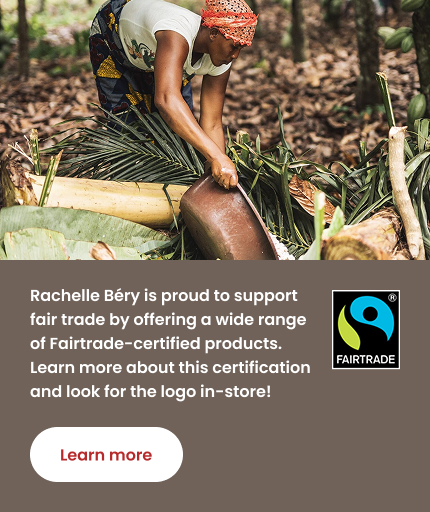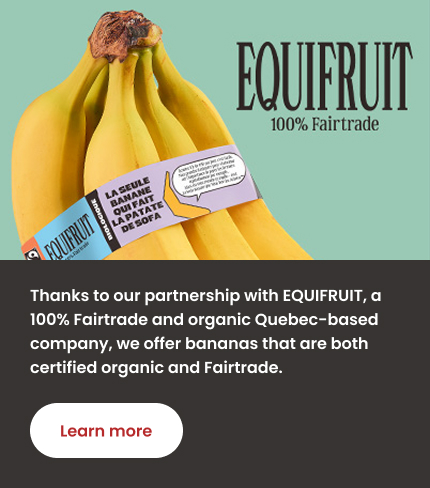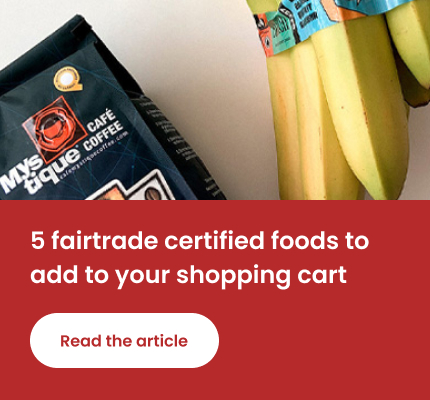What is Fair Trade?
Fair trade is a commercial partnership built on respect, dialogue, and transparency, aiming to create greater equity in international trade. Organizations involved in fair trade are supported by consumers and actively engaged in raising awareness and advocating for changes to conventional trade rules and practices. The goal? To foster sustainable development by improving working conditions and promoting the rights of marginalized producers and workers around the world.
When a product’s supply chain is fair, power is redistributed so that farmers and workers have access to decent working conditions and earn a living wage—enough to cover basic needs like housing, healthcare, food, and education for their children.
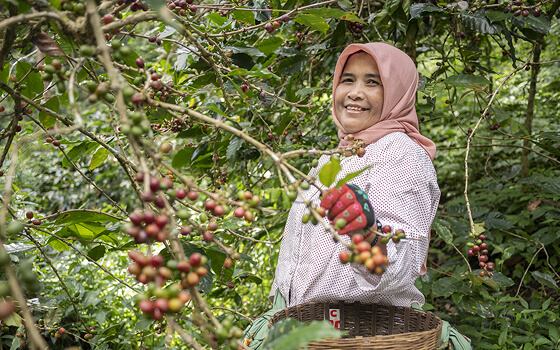

How to Identify Fair Trade Products
To know if a product is fair trade, look for a logo or label on its packaging. Unlike the term “organic,” which is regulated in Canada, “fair trade” is not a controlled designation. There are no specific laws governing its use beyond general advertising standards that prohibit false or misleading claims.
Common fair trade products include coffee, chocolate, bananas, tea, coconut-based items, and grains like quinoa. Several certification organizations exist, such as Fairtrade International, Fair For Life, Small Producers’ Symbol (SPP), and the World Fair Trade Organization (WFTO).
Fair Trade: Supporting Sustainable Agriculture
Choosing fair trade means supporting environmentally respectful farming practices. It’s a real and tangible way to preserve soil health, waterways, and biodiversity. This choice helps reduce the use of harmful chemicals and limits exposure to pesticides—benefiting the planet, producers, and consumers alike.
Quality Products You Can Trust
Fair trade certification requires strict standards to ensure product quality. Most fair trade food items are free from additives and artificial coloring, making them naturally delicious.
Discover Fair Trade Products at Rachelle Béry
At Rachelle Béry, we’re proud to work with suppliers who share our values. That’s why we’re committed to ethical choices and continue to expand our selection of fair trade products, including:
- Bananas
- Coffee
- Tea
- Chocolate
These products not only ensure fair wages for producers and workers, but also help improve living conditions for their families and communities. Remember: choosing certified fair trade products means contributing to environmental protection and social equity.
Why Choose Fair Trade products?
Buying Fairtrade-certified products means supporting rigorous standards that protect producers’ health, land, and income, while promoting sustainable farming practices and upholding human rights and environmental values.
In the face of climate change, Fairtrade has long banned toxic pesticides and GMO seeds, protected biodiversity and water resources, encouraged organic farming, and trained producers to adapt to evolving climate realities.
In a world of greenwashing, the Fairtrade label is a mark of trust. It assures consumers that their purchases support fairer wages, sustainable agriculture, and community development.
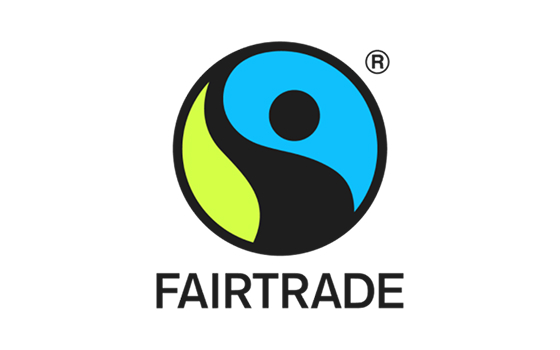
Since 2011, through a partnership with Equifruit, stores like IGA, Rachelle Béry, Marché Tradition, Bonichoix, and our buying members have been offering organic Fairtrade bananas. In 14 years, this has generated US$1.3 million in Fairtrade Premiums, reinvested by producers into essential projects of their choosing, like education, healthcare, infrastructure, and business improvements.
Next time you shop, look for the Fairtrade Mark on your products. It’s an easy way to make a meaningful difference for farming communities around the world—and to support a better future for the planet.


